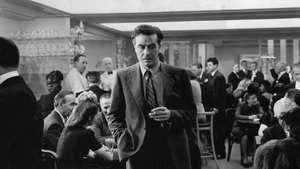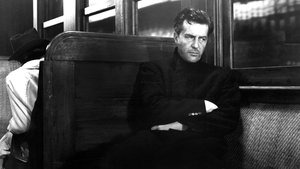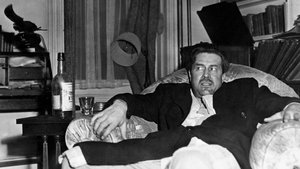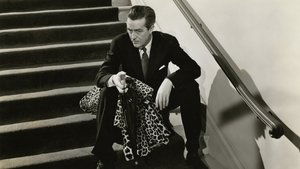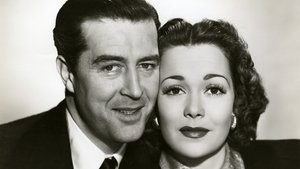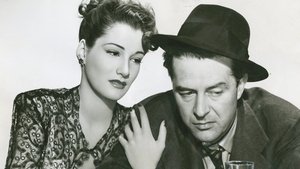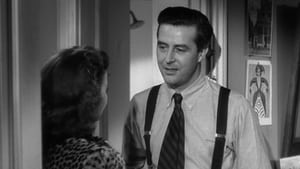Contact: [email protected]
Video Sources 0 Views
- Watch trailer
- The Lost Weekend

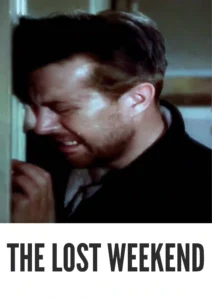
The Lost Weekend 1945 First Early Colored Films Version
Synopsis
Table of Contents
ToggleReview: The Lost Weekend (1945) – A Haunting Portrait of Addiction

Introduction
The Lost Weekend, released in 1945, is a groundbreaking film directed by Billy Wilder that offers a raw and unflinching portrayal of alcoholism. Renowned for its powerful performances, stark cinematography, and uncompromising honesty, this classic drama continues to resonate with audiences as a timeless exploration of addiction and despair. In this review, we’ll delve into the haunting world of The Lost Weekend and its enduring impact on cinema.
Check The Full Colorized Movies List
Check Our Colorized Movies Trailer Channel
Understanding The Lost Weekend (1945): Director, Cast, and Genre
Directed by Billy Wilder, The Lost Weekend features a stellar cast led by Ray Milland in an Oscar-winning performance as Don Birnam, a struggling writer grappling with alcoholism. The film belongs to the drama genre, known for its intense emotional depth and unflinching portrayal of human suffering.
Exploring the World of The Lost Weekend (1945): Plot and Characters
The Lost Weekend follows the harrowing journey of Don Birnam, a failed writer whose life spirals out of control during a weekend bender. As he descends deeper into the throes of addiction, Don grapples with his demons, facing the devastating consequences of his alcoholism while clinging to the faint hope of redemption. Through its stark portrayal of one man’s struggle with addiction, the film offers a poignant commentary on the destructive power of substance abuse.
The Art of Film Colorization
While The Lost Weekend was originally filmed in black and white, its early colorized version adds a new layer of depth to its atmospheric visuals. The colorization process enhances the film’s emotional impact and captures the nuances of its characters’ inner turmoil with striking clarity.
Early Colored Films: A Brief History
The history of early colored films is marked by innovation and experimentation as filmmakers sought to enhance the visual appeal of their movies. From hand-tinted frames to pioneering technicolor processes, the evolution of colorization techniques transformed the cinematic landscape, offering audiences a new way to experience the darkness and intensity of dramatic narratives.
The Lost Weekend (1945) and Its Early Colored Version
The decision to release The Lost Weekend in a colorized format was made with the intention of immersing audiences in the emotional depth of its narrative and enhancing the film’s visual impact. While some purists may prefer the original black and white version, the early colorized edition of The Lost Weekend adds a new layer of depth to its atmospheric cinematography and captures the psychological complexity of its characters with breathtaking clarity.
The Debate Over Film Colorization
The debate over film colorization continues to divide audiences and industry professionals alike. While some argue that colorization breathes new life into classic films and makes them more accessible to modern audiences, others maintain that it compromises the artistic integrity of the original work. As technology advances and filmmaking techniques evolve, the debate over colorization remains a topic of ongoing discussion within the film community.
Examining The Lost Weekend (1945) as an Early Colored Film
Viewing The Lost Weekend in its early colorized iteration offers audiences a fresh perspective on its emotional depth and psychological complexity. The colorization process enhances the film’s haunting atmosphere and captures the intensity of its characters’ inner turmoil with stunning clarity. As viewers are drawn into Don Birnam’s harrowing struggle with addiction, they are treated to a visual experience that immerses them in the darkness and despair of his world.
Influence and Legacy: The Lost Weekend (1945)’s Impact on Cinema
The Lost Weekend is widely regarded as a groundbreaking film that paved the way for a more honest and nuanced portrayal of addiction in cinema. Its raw and unflinching depiction of alcoholism challenged traditional Hollywood conventions, opening the door for a new generation of filmmakers to explore taboo subjects with greater depth and authenticity. The film’s enduring legacy continues to inspire artists and resonate with audiences as a timeless testament to the human condition.
Director’s Cinematic Legacy: Beyond The Lost Weekend (1945)
Billy Wilder’s directorial legacy extends far beyond The Lost Weekend, encompassing a diverse body of work that includes acclaimed films such as Sunset Boulevard and Some Like It Hot. As one of the most innovative filmmakers of his generation, Wilder was known for his ability to craft compelling narratives that resonated with audiences on a deeply emotional level. The Lost Weekend stands as a testament to his talent and creativity, solidifying his reputation as one of the great auteurs of classic Hollywood cinema.
Themes Explored in The Lost Weekend (1945)
At its core, The Lost Weekend explores themes of addiction, despair, and redemption in the face of overwhelming adversity. Through its stark portrayal of one man’s struggle with alcoholism, the film offers a poignant commentary on the human condition, challenging viewers to confront their own demons and find hope in the darkest of places.
Reception and Controversy Surrounding The Lost Weekend (1945)
Upon its release, The Lost Weekend received widespread critical acclaim for its powerful performances, stark cinematography, and uncompromising honesty. While the decision to release the film in a colorized format sparked debate among purists, its enduring popularity has cemented its status as a timeless classic of American cinema.
Where to Watch The Lost Weekend (1945) Online
For those eager to experience The Lost Weekend for themselves, the film is readily available on popular streaming platforms such as Amazon Prime Video, Google Play Movies, and iTunes. Whether viewed in its original black and white format or its early colorized iteration, The Lost Weekend offers a cinematic experience that is both haunting and visually stunning.
FAQs About The Lost Weekend (1945)
1. Is The Lost Weekend based on a true story?
No, The Lost Weekend is a fictional film that explores the devastating effects of alcoholism through the eyes of its protagonist, Don Birnam. While the film’s storyline may draw inspiration from real-life experiences, its characters and plot are works of fiction.
2. Who starred in The Lost Weekend?
The Lost Weekend stars Ray Milland in an Oscar-winning performance as Don Birnam, a struggling writer grappling with alcoholism. He is supported by a talented ensemble cast, including Jane Wyman, Phillip Terry, and Howard Da Silva.
3. What is the central message of The Lost Weekend?
At its core, The Lost Weekend is a cautionary tale about the destructive power of addiction and the importance of seeking help in times of crisis. Through its raw and unflinching portrayal of alcoholism, the film offers a poignant commentary on the human condition, challenging viewers to confront their own struggles and find hope in the face of adversity.
4. Why was The Lost Weekend released in a colorized format?
The decision to release The Lost Weekend in a colorized format was made with the intention of immersing audiences in the emotional depth of its narrative and enhancing the film’s visual impact. While some purists may prefer the original black and white version, the early colorized edition of The Lost Weekend adds a new layer of depth to its atmospheric cinematography and captures the psychological complexity of its characters with breathtaking clarity.
5. What is the legacy of The Lost Weekend?
The Lost Weekend is widely regarded as a groundbreaking film that paved the way for a more honest and nuanced portrayal of addiction in cinema. Its raw and unflinching depiction of alcoholism challenged traditional Hollywood conventions, opening the door for a new generation of filmmakers to explore taboo subjects with greater depth and authenticity. The film’s enduring legacy continues to inspire artists and resonate with audiences as a timeless testament to the human condition.
6. Are there any sequels or remakes of The Lost Weekend?
No, there have been no official sequels or remakes of The Lost Weekend. However, the film’s enduring popularity has inspired countless reinterpretations and homages in various media. Nonetheless, none have captured the raw emotional power and stark realism of the original 1945 classic.
7. Where can I watch The Lost Weekend online?
For those eager to experience The Lost Weekend for themselves, the film is readily available on popular streaming platforms such as Amazon Prime Video, Google Play Movies, and iTunes. Whether viewed in its original black and white format or its early colorized iteration, The Lost Weekend offers a cinematic experience that is both haunting and visually stunning.
Conclusion
In conclusion, The Lost Weekend (1945) stands as a haunting masterpiece that continues to captivate audiences with its powerful performances, stark cinematography, and uncompromising honesty. Whether viewed in its original black and white format or its early colorized iteration, Billy Wilder’s insightful direction and Ray Milland’s Oscar-winning performance offer a cinematic experience that is both emotionally resonant and visually stunning. As viewers are drawn into the harrowing world of addiction, they are challenged to confront their own struggles and find hope in the darkest of places. The Lost Weekend remains a timeless classic that continues to inspire and enlighten audiences around the world.
